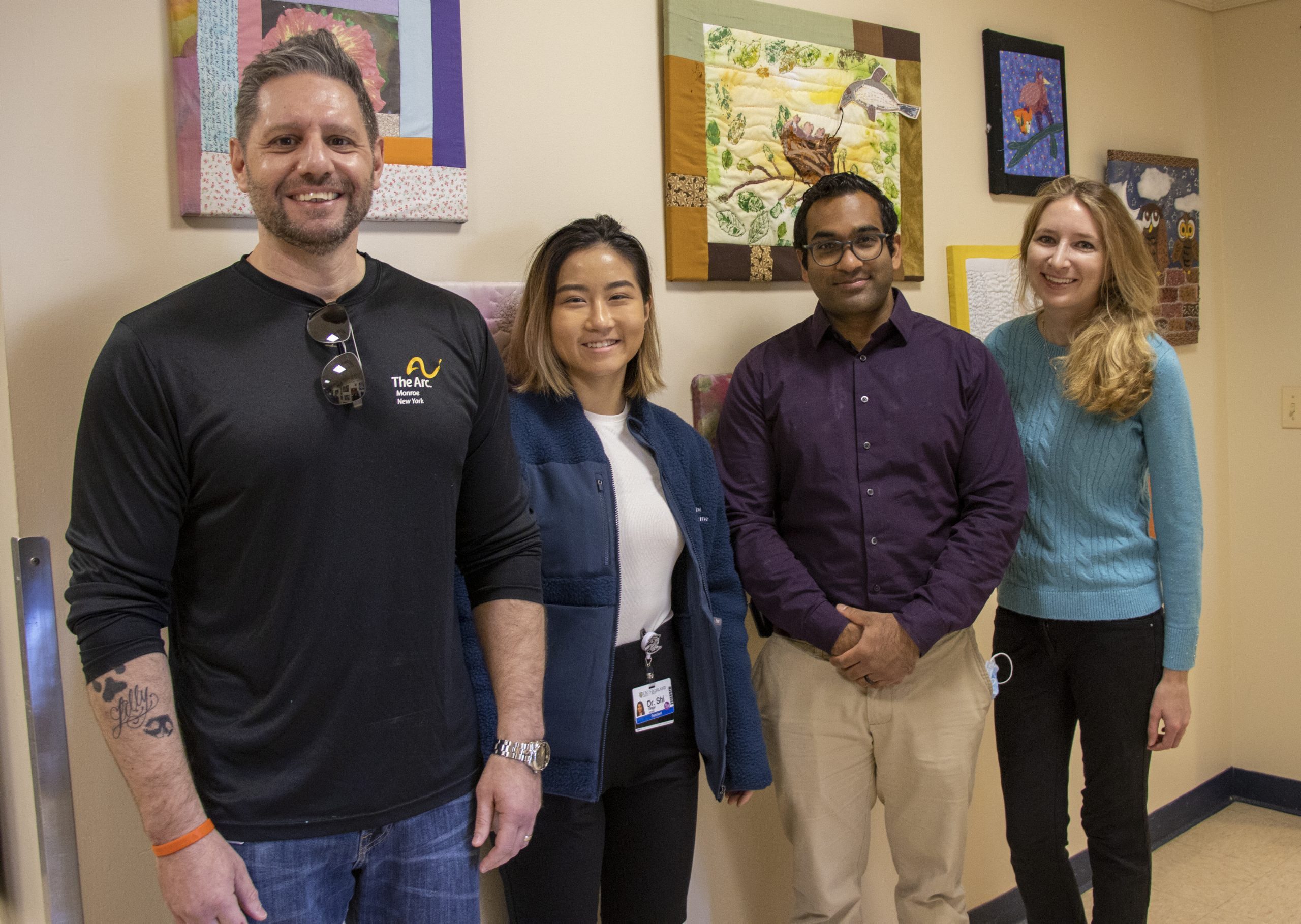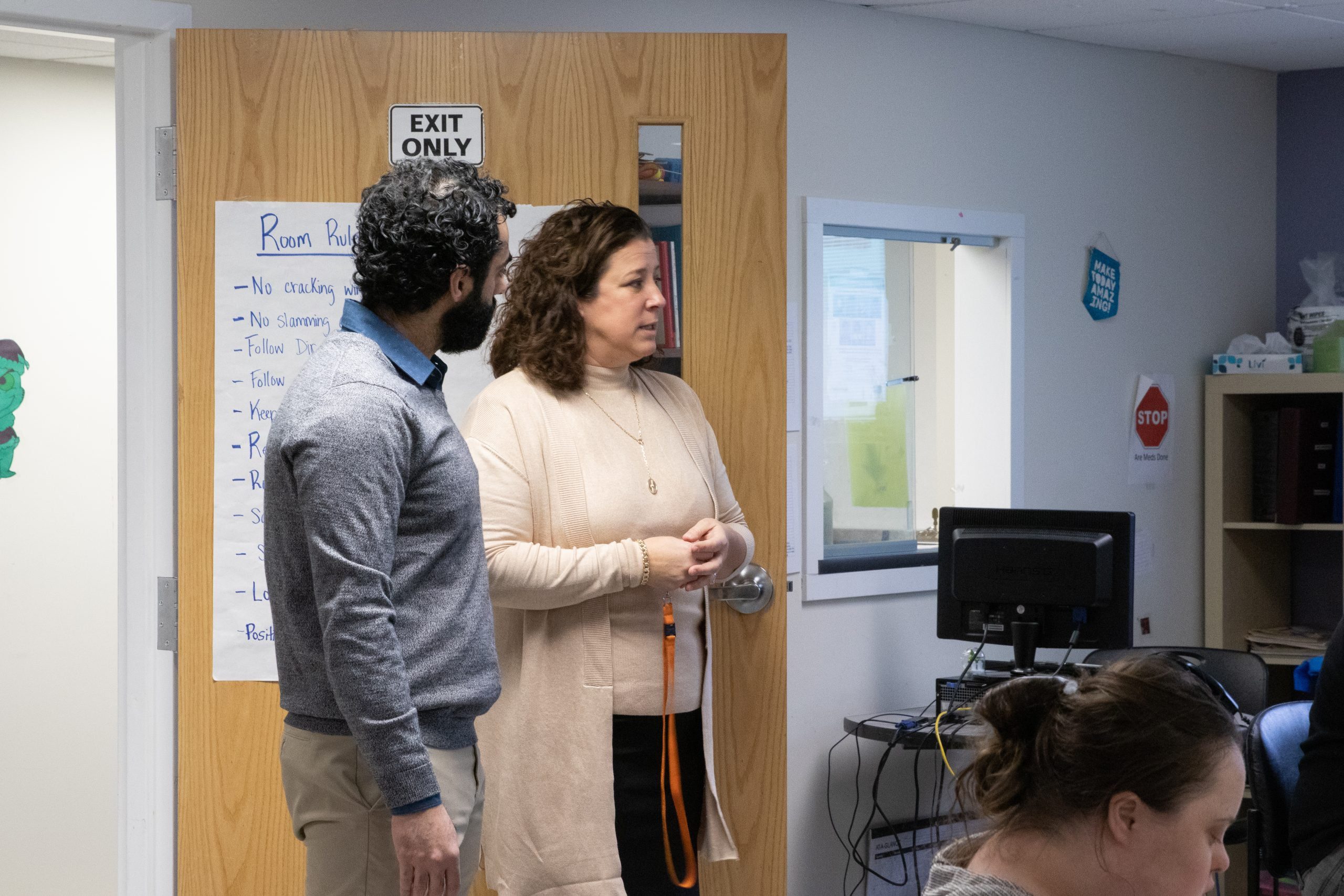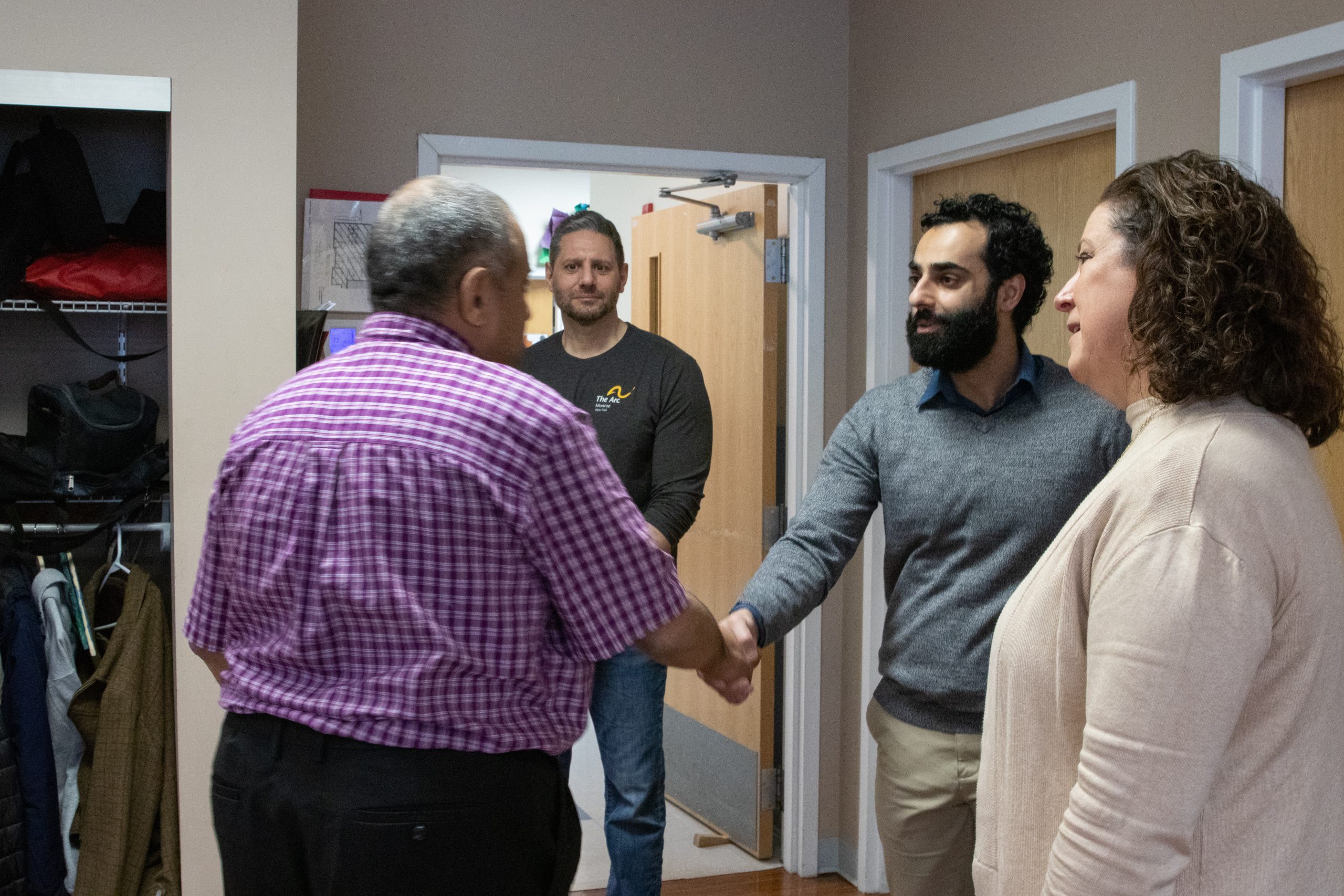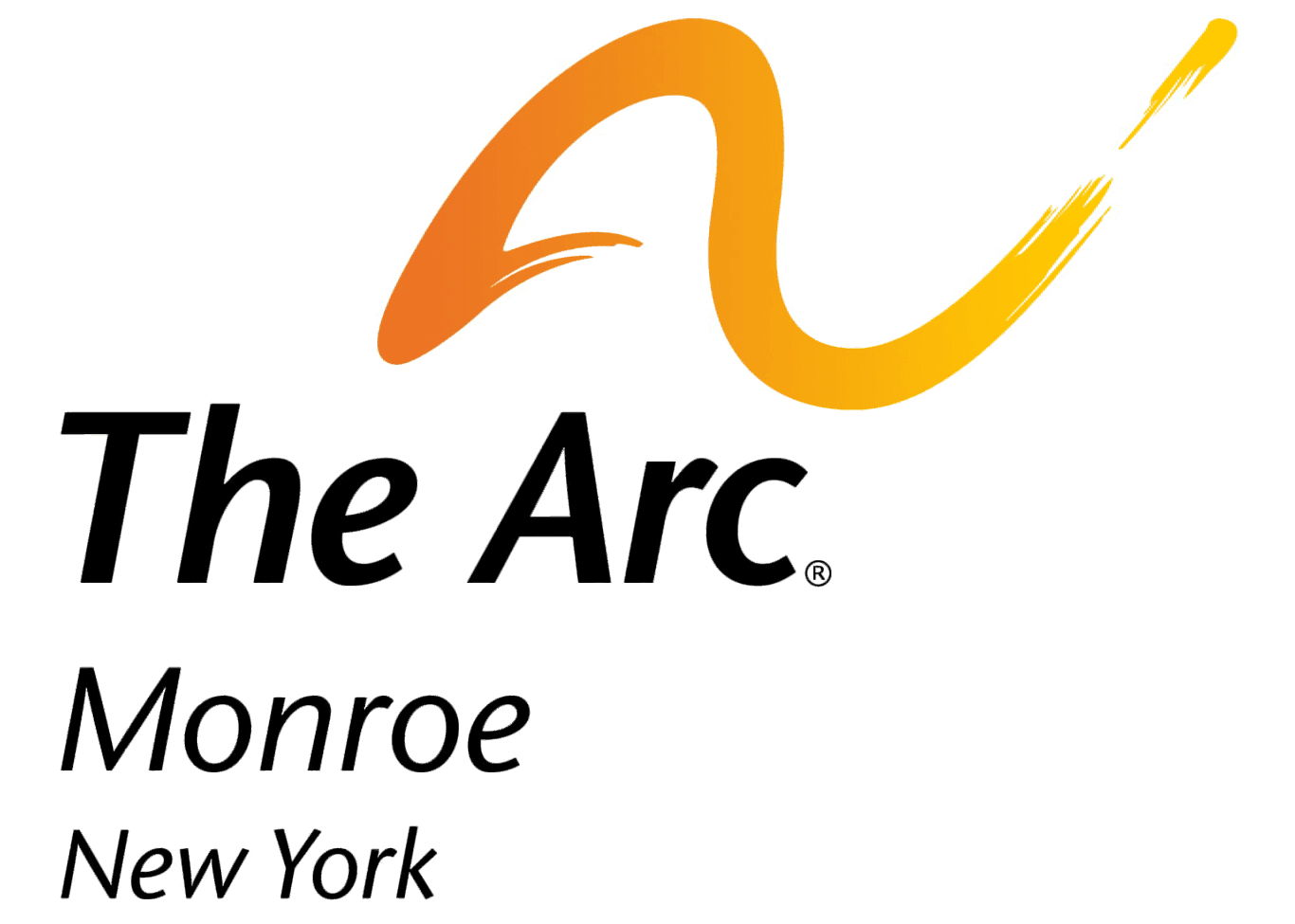For more than 65 years, The Arc of Monroe has advocated for people with intellectual and developmental disabilities (IDD) across Monroe County. Part of advocating for this population is ensuring that various healthcare professionals have a better understanding of how to communicate with people with IDD and equipping them with information about how they can better support their patients. This mission of educating healthcare professionals fits perfectly into the University of Rochester’s Pediatric Links with the Community (PLC) program administered by U of R’s Hoekelman Center.

Since its inception about 30 years ago, the PLC program has trained more than 900 physicians and students who are in the residency phase of their medical training. Each one is given a two-week block of time to leave the hospital and visit various community organizations in an effort to learn more about their patients and the people in their community. The Arc of Monroe is proud to be one of their stops.
“A key part of our program is the social determinants of health – where people live, work, play, and how that impacts their health,” Hoekelman Center Manager, Rosa Lloyd, said. “By having residents go out into the community during this two-week rotation, and then visiting sites such as The Arc of Monroe, it helps the residents to better understand what is available to better address their patients’ social determinants of health concerns. It helps them learn some key skill building and expose them to some of the issues that their patients have.”
 During the two-week rotations, residents have front-row seats to some of the most common barriers that people in Rochester face when it comes to caring for their health. If patients rely on inconsistent public transportation, residents are able to see how bus schedules interfere with people showing up to appointments on time. If patients are dealing with traumatic circumstances in their personal life or in their community, residents are able to see how those situations play out in their medical care. It creates empathy and understanding for future physicians when they are exposed to challenges their patients encounter.
During the two-week rotations, residents have front-row seats to some of the most common barriers that people in Rochester face when it comes to caring for their health. If patients rely on inconsistent public transportation, residents are able to see how bus schedules interfere with people showing up to appointments on time. If patients are dealing with traumatic circumstances in their personal life or in their community, residents are able to see how those situations play out in their medical care. It creates empathy and understanding for future physicians when they are exposed to challenges their patients encounter.
People with IDD often experience unique social determinants of health. Having programs like PLC that equip medical professionals with valuable tools and a deeper understanding of the people they help is an incredible resource for the Rochester community. It has been a joy for staff at The Arc of Monroe to tour residents and students around our various locations and help them gain a better understanding of what it means to positively advocate for people with IDD in a person-centered way.
 “The goal with Pediatric Links with the Community is to train residents on community health and health advocacy,” Rosa said. “One of the things that the residents learn is how to advocate health topics and health concerns on behalf of their patients.” Rosa noted that part of this training includes faculty teaching residents how to effectively advocate for their patients despite time constraints in their schedules, how to get on an agenda of a local council meeting, and how to find more information about things going on throughout the community that could help patients.
“The goal with Pediatric Links with the Community is to train residents on community health and health advocacy,” Rosa said. “One of the things that the residents learn is how to advocate health topics and health concerns on behalf of their patients.” Rosa noted that part of this training includes faculty teaching residents how to effectively advocate for their patients despite time constraints in their schedules, how to get on an agenda of a local council meeting, and how to find more information about things going on throughout the community that could help patients.
At The Arc of Monroe, we love to see the positive the impact this health advocacy can have on our community as a whole. When physicians see and communicate with people with IDD in a way that empowers them, it leads to healthier, more inclusive communities. We are thankful for the work being done at the University of Rochester’s Hoekelman Center as hundreds of physicians receive training to better care for the people they help every day.
To learn more about the Hoekelman Center and the PLC program, visit the URMC website. To learn more about services at The Arc of Monroe, visit our website at www.ArcMonroe.org/Services.
